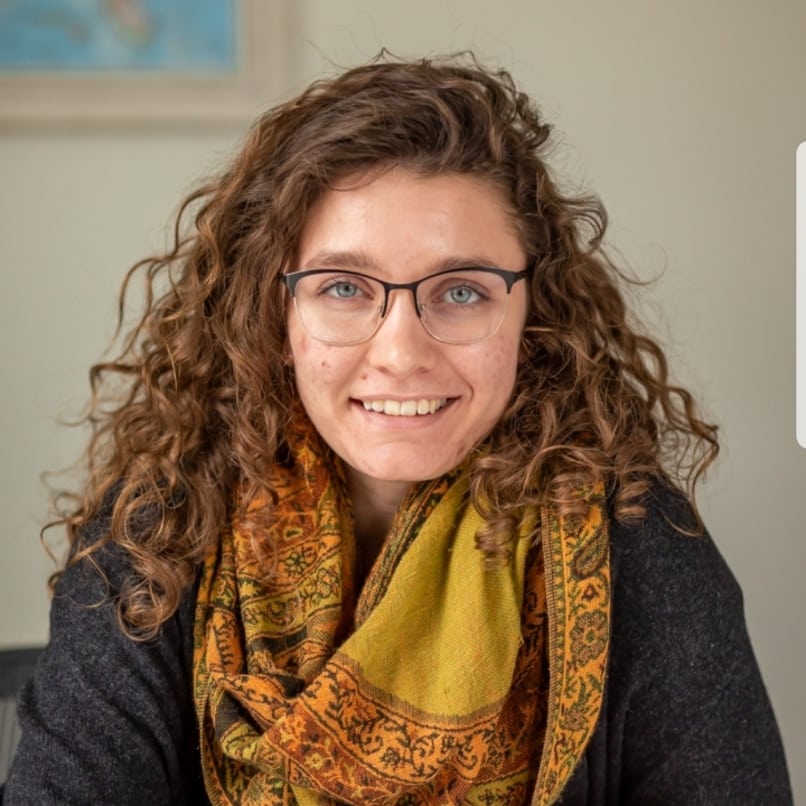
Lessons in Storytelling: Approaching the Unfamiliar with Visiting Writer Dennis Covington
Written by Marcella Brylski
Dennis Covington has a gift for storytelling, a gift that he shared with Hillsdale students when he visited campus in February. His training as a writer runs deep. He studied, at various times, under such American-literature greats as Raymond Carver (whom he refers to affectionately as “Ray”), John Cheever, and Peter Taylor. Covington himself is also a celebrated writer who has received fellowships from both the National Endowment for the Arts and the Alabama State Council on the Arts, and whose best known work, Salvation on Sand Mountain: Snake Handling and Salvation in Southern Appalachia, was a 1995 National Book Award finalist.
Students had several formal opportunities to learn from Mr. Covington’s aptitude for storytelling during his two-day visit to campus this semester. Mr. Covington participated in multiple writing workshops for students, two student lunch events—one with a group of English majors taking a class on literary non-fiction with Dr. John Somerville, the current director of the Visiting Writers Program, and one with a group of journalism students—a Q&A session, and two readings from his works, which were open campuswide. My favorite parts of the visit, however, were those in which I got to witness his gift for storytelling in action.
After the eight o’clock reading, students trickled across campus to our house while Mr. Covington talked to students and professors. I met Mr. Covington and his friend and travel companion, Kimberly, at the end of our long driveway, which leads back behind the row of houses on the street to our house. The snow on the ground reflected the blue light of the almost-full moon, creating a quiet glow that contrasted with the warm light pouring out of the kitchen window. We stepped in out of the cold to find a group of twenty-or-so students gathered in the low light of our dining room and kitchen, all chatting and grazing on cheese and crackers, which a couple of friends had run out to grab from the local grocery store.
Eventually, the whole group moved from the crowded kitchen to the living room, where we started off our time by singing “Kind Friends and Companions,” an old Irish drinking song that traditionally kicks off the poetry nights that have become a tradition across several generations of Hillsdale students. Having sung, students settled around the living room, pulling up chairs from around the house, squeezing onto the couch, and spilling over onto the floor and the ledge in front of the fireplace. Still wearing the “Indiana Jones” hat that he won for correctly guessing the shape of a platypus’s face at a dinner party, Covington began to share stories from his life. Some intensely personal stories, about things like the difficult parts of marriage and of falling in love or his visits with children affected by the war in Syria, and some just plain wild, like the one about his attempt to reclaim some land that he inherited from his father, which involved, in the end, joining what he termed a redneck hunting club, the shooting up of his canvas cabin, and the torching of his jeep.
As a journalist, Covington has covered stories that range from bizarre to horrific. Several times in his life, he has been in what was at that particular time the most dangerous place in the world, as when he convinced a news agency to give him a press pass to go to El Salvador without any previous journalistic experience, or when he spent time in Syria during the Syrian Civil War, knowing next to no Arabic and risking his life to visit ISIS-occupied sites throughout the country. Dennis Covington has a vast wealth of experience with people, places, and events that most of us cannot imagine encountering. And yet, when one sits down to talk with him, and when he (almost inevitably) begins to share stories from his own life, often ones that are deeply personal and unapologetically real, one senses not so much the strangeness and the wildness of his experiences as the humanity of those involved, no matter how strange or immediately off-putting their circumstances might be. His frank but never aggressive style of speaking belies a generosity and openness of thought that marks his writing too—he manages to reveal the humanity of even those we might automatically write off as crazy, or at least too different for us to understand in any meaningful way. This happens throughout Salvation on Sand Mountain, in which the reader gets a close-up view of not only the religious practices but even the personal lives of the members of a congregation of men and women in Appalachia who take up snakes as an act of faith. In that work, Mr. Covington’s presence within the text, and his close attention to even the physical details of his surroundings, humanizes the experience of these people and renders them familiar in an unexpected way.
After only a couple of days, I was pretty convinced that storytelling is his natural mode of existence. Stories during lunch, during his readings, as a career, and as a way of keeping up conversation. But perhaps my favorite part of Mr. Covington’s visit was the evening he spent at my off-campus house with a gathering of students, mostly upperclassmen, who had attended his reading earlier in the day.
Hearing Dennis Covington tell stories, one gets the sense that he is always entirely himself, unapologetically although not aggressively, and that he has a profound and generous respect for people and for their circumstances, perhaps born out of his own depth of experience and the close attention he seems to pay to those around him. This kind of respect and attention to the details of human life is something that I aspire to—and I cherish the opportunity to have witnessed it firsthand through Dennis Covington’s time at Hillsdale as a visiting writer.
 Marcella Brylski, ’20, grew up in the great state of Minnesota, where she learned to love sunny fall days and distance running along the Mississippi River. She studies English and Greek at Hillsdale and takes great joy in unexpected conversations with friends, discovering contemporary poets, and unearthing treasures at the local thrift store.
Marcella Brylski, ’20, grew up in the great state of Minnesota, where she learned to love sunny fall days and distance running along the Mississippi River. She studies English and Greek at Hillsdale and takes great joy in unexpected conversations with friends, discovering contemporary poets, and unearthing treasures at the local thrift store.
Published in April 2019